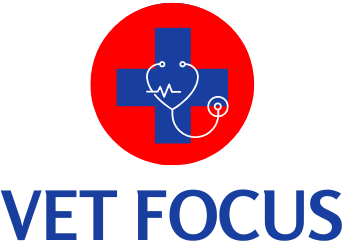Veterinary care is an expansive and intricate field dedicated to safeguarding the health and well-being of animals, encompassing a myriad of specialized areas and subtopics. This Overview delves into the key subtopics within veterinary care, shedding light on their significance and the critical role they play in the holistic approach to animal healthcare.
Animal Anatomy and Physiology: In the realm of veterinary care, a profound understanding of animal anatomy and physiology is the bedrock upon which all other knowledge is built. This subtopic delves deep into the intricacies of the animal body, from its musculoskeletal system to its organ function. Veterinarians and veterinary technicians acquire this knowledge to perform accurate diagnoses and administer effective treatments tailored to an animal's specific physiological makeup.

Preventive Medicine: Preventive medicine constitutes a cornerstone of veterinary care, emphasizing proactive measures to keep animals healthy. It encompasses routine vaccinations, regular check-ups, and health screenings, all aimed at detecting and addressing potential health issues before they escalate. Preventive medicine is pivotal in ensuring the long-term well-being of animals and reducing the burden of disease.
Surgery and Anesthesia: Veterinary surgery encompasses a broad spectrum of procedures, from routine spaying and neutering to intricate surgeries. The subtopic of surgery and anesthesia is dedicated to ensuring the safety and well-being of animals during surgical interventions. Anesthesia management is a crucial component, ensuring that animals are pain-free and comfortable throughout the surgical process.
Pharmacology: Pharmacology plays a pivotal role in veterinary care, encompassing the study of medications used to treat animals. Veterinarians must possess a deep understanding of drug interactions, dosages, and potential side effects to ensure the safe and effective treatment of their patients. This subtopic underpins the responsible use of medications in animal healthcare.
Disease Management: The field of disease management is central to veterinary care. Veterinarians diagnose and treat a wide range of diseases, from common infections to complex chronic conditions. Effective disease management not only alleviates suffering but also enhances an animal's overall quality of life.
Zoonotic Diseases: The study of zoonotic diseases focuses on illnesses that can be transmitted between animals and humans. Veterinary professionals play a crucial role in preventing, diagnosing, and treating these diseases. By addressing zoonotic diseases, veterinarians not only protect the health of animals but also contribute to public health efforts.
Dentistry and Oral Health: Dentistry is a critical subfield in veterinary care, focusing on the oral health of animals. Veterinarians trained in dentistry address dental issues such as periodontal disease, tooth extractions, and oral surgeries. Oral health plays a vital role in an animal's overall well-being, impacting their ability to eat, speak, and maintain optimal health.
Emergency and Critical Care: Emergency and critical care veterinarians are skilled in providing immediate, life-saving interventions for animals facing emergencies. This subtopic involves the rapid assessment, stabilization, and treatment of critical cases, ranging from trauma and toxic exposures to respiratory distress and cardiac emergencies.
Equine Medicine: Equine medicine focuses specifically on the health and well-being of horses. Equine veterinarians address issues ranging from routine vaccinations and lameness evaluations to specialized care for performance horses. This subfield requires a deep understanding of equine anatomy, behavior, and performance requirements.
Parasitology and Parasite Control: Parasitology is a vital aspect of veterinary care, focusing on the identification and management of internal and external parasites that can affect animals. Effective parasite control is essential for preventing diseases and maintaining the health of both animals and their human companions.

veterinary care is a multifaceted and interdisciplinary field that draws upon a diverse range of subtopics to provide comprehensive healthcare for animals. Each of these subtopics contributes uniquely to the overarching goal of promoting the well-being of animals and maintaining the delicate balance between human, animal, and environmental health

